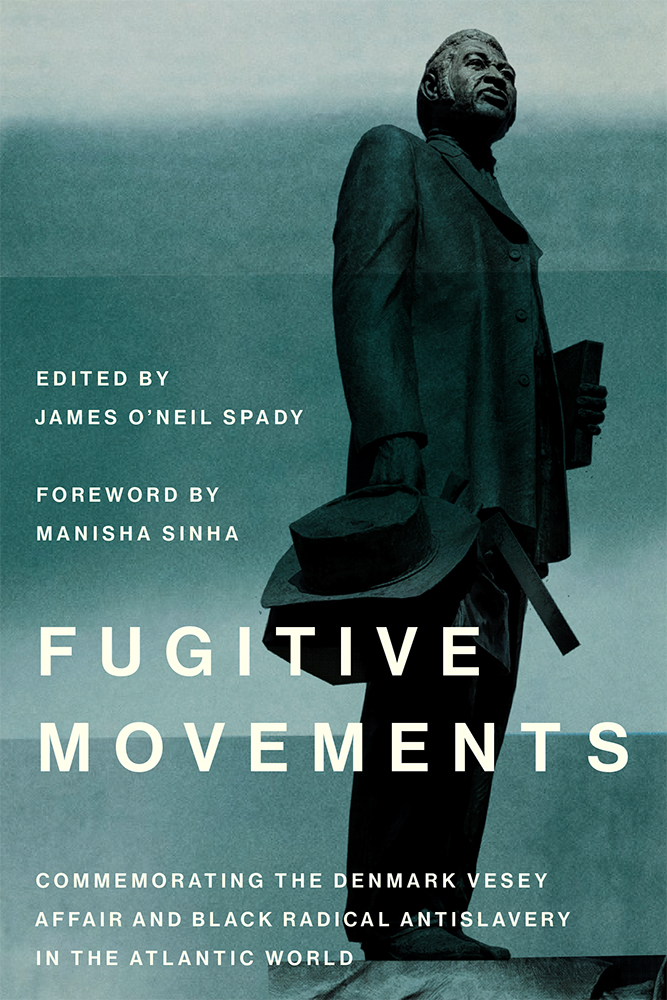Black History Month Sale: 40% off all books, plus FREE SHIPPING on all U.S. orders over $50 | Use code JBHM26

Size: 6 x 9
Pages: 322
Illustrations: 15 b&w halftones, 4 maps
edited by James O'Neil Spady
The inclusion of this book in the Open Carolina collection is made possible by the generous funding of
"Fugitive Movements is a thoughtful and wide-ranging volume exploring not just the 1822 Vesey conspiracy, but black antislavery and resistance across both time and place. The collection draws on new ways of framing Vesey and evidence from around the Atlantic World to inspire a broader understanding of the world of Vesey and his co-conspirators."—John Garrison Marks, author of Black Freedom in the Age of Slavery: Race, Status, and Identity in the Urban Americas
"White Southerners who took up arms to assert their freedom in 1776 are revered, but mainstream thought traditionally ignored or reviled Black Southerners who aspired to do the same. Patient and varied recent scholarship has pushed Americans to confront that contradiction. This welcome collection reflects, and advances, the discussion admirably."—Peter H. Wood, author of Black Majority and Strange New Land
"[This] collection does much to reframe the 1822 uprising as one episode akin to others in a dynamic Black Atlantic, African diaspora, and Age of Revolutions framework. [The] volume is as dedicated to restoring the circumatlantic dimensions of the uprising as it is to reinstating Vesey himself within radical history."—Journal of Southern History
"Fugitive Movements is a timely and necessary collection that adeptly interweaves historical scholarship and memory studies to advance understanding of the long legacy of Black resistance evident in the 1822 uprising and the Black freedom struggles that have endured to this day."—American Nineteenth Century History
"Overall, this collection contains essays that are important for not only understanding past fugitive movements but also connecting the past to current cultural movements sweeping the world. By showing that "all Black freedom movements are fugitive" and reformulating Black antislavery as a fugitive social movement, Spady is able to "preserve a history of the Black radical tradition and link our contested present to the past," as Manisha Sinha states in the foreword to the collection (pp. xii, xiii). This book would be a great addition for a graduate-level class focusing on antislavery or Black freedom movements in the Atlantic world. It would also be of interest to any scholar who has interest in the Atlantic world, especially those who focus on the eighteenth and nineteenth centuries. Furthermore, the connection the essays make between past anti-racist events and present-day Black freedom movements makes this a must read for anyone interested in today's racial political climate."—Florida State University, H-Net Reviews
Copyright 2026
Website By Morweb.org